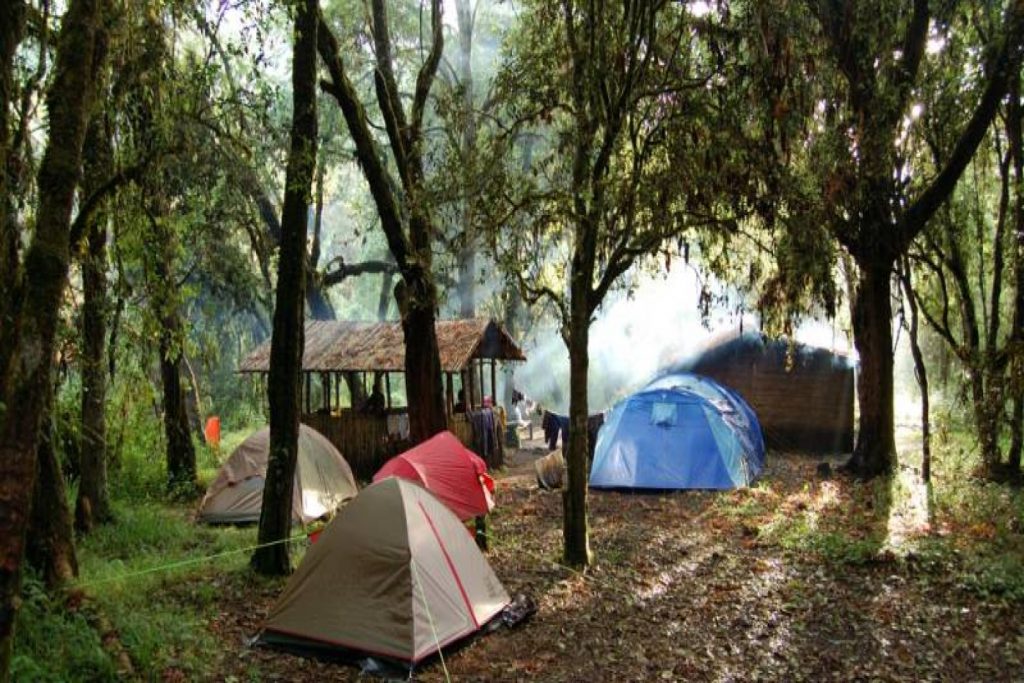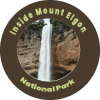Mude camp is found in Mount Elgon National Park, where Mount Elgon lies. Mount Elgon is an extinct volcano and one of Uganda’s oldest physical features, with the largest surface area of any extinct volcano in the world which has a massive solitary volcanic mountain on the border of eastern Uganda and western Kenya. Its vast form, 80 kilometers (50 mi) in diameter, rises 3,070 meters (10,070 ft.) above the surrounding plains.

The camp is named after an infamous poacher called Mude, who, in his time, managed to elude the authorities. He finally died in a cave where the camp site is, hence the name Mude Cave Camp.
Mude Camp is quite cold and is 3,900 meters above sea level, surrounded by about five hills. It is fascinating to watch the clouds completely envelop the valleys and hills almost every five minutes, and with the clouds comes a sharp cold wind that chills you to the bone. At Mude camp you’re most likely to wear a warm trouser, two sweaters and gloves, to feel somehow worm.
One of the things that most will strike you about Mude Camp is the silence of the mountain. It’s so still and quiet while at this site. There are no mysterious sounds, except the occasional whistles of birds.
About Mount Elgon National Park With Mude Camp
Mount Elgon National Park is named after Mount Elgon, an extinct shield volcano on the border of Uganda and Kenya, north of Kisumu and west of Kitale.
The Ugandan part of the park was gazetted in 1992, while the Kenyan part was gazetted much earlier in 1968. The entire park was declared a UNESCO Biosphere Reserve. The park has a variety of wildlife, including birdlife, as a result, it provides great volcano climbing opportunities. It is the perfect destination for an African safari.
After visiting Mount Elgon National Park, Uganda is such a blessed destination that you can explore as a beautiful garden. You can make your way to Murchison Falls National Park, one of Uganda’s spectacular wildlife safari park, to encounter the big five on your lucky day. Don’t miss the amazing boat cruise amidst the aquatic life and countless bird species. Further west, you can’t afford to miss the lifetime gorilla trekking safari in Bwindi Impenetrable and Mgahinga Gorilla National Parks.
